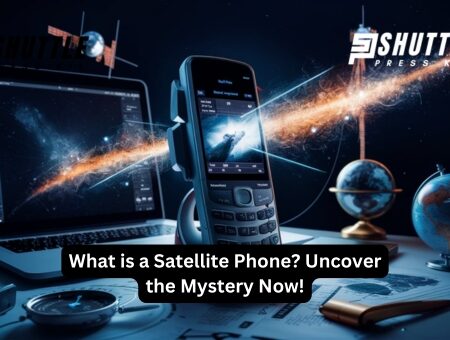Have you ever wondered how people stay in touch in the remotest parts of the world? Imagine being in the middle of an ocean or on top of a mountain with no cell service.
Well, that’s where understanding what is a satellite phone becomes crucial. These devices are interesting and mysterious; their unique capabilities might just surprise you!
A satellite phone is a type of mobile phone that connects to orbiting satellites instead of terrestrial cell sites. Instead of relying on fixed towers, it communicates directly with satellites.
This means you can use it where traditional phones fail, from isolated deserts to vast oceans – virtually anywhere on Earth.
What is a Satellite Phone Use
Satellite phones serve as a vital communication tool, especially in areas where traditional cellular networks are nonexistent or have been compromised.
These devices rely on satellites orbiting the Earth to enable phone calls, SMS messages, and even internet services in the most remote regions.
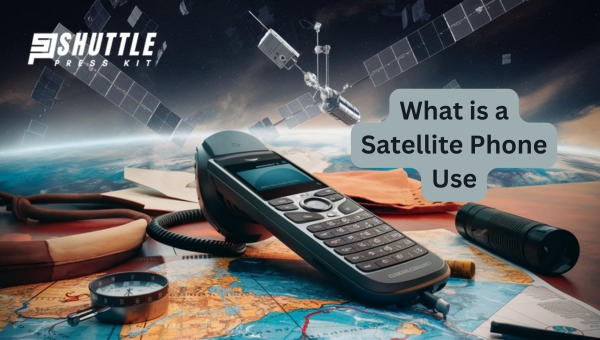
From deep-sea explorers to mountaineers, and from disaster response teams to those working in isolated research stations in Antarctica, satellite phones provide a lifeline by ensuring that they remain connected to the rest of the world.
Beyond their use in remote locations, satellite phones are crucial during natural disasters when local communication infrastructure is often destroyed or overwhelmed.
In such scenarios, they become essential for coordinating relief efforts and establishing contact with affected individuals.
Also Read: How to Contact Starlink Customer Support? – Quick Guide
Who Would Benefit from Using a Satellite Phone?
Satellite phones provide essential communication links where standard mobile networks fail. These devices are indispensable in areas without cellular coverage, ensuring connectivity during critical situations and in remote locations.
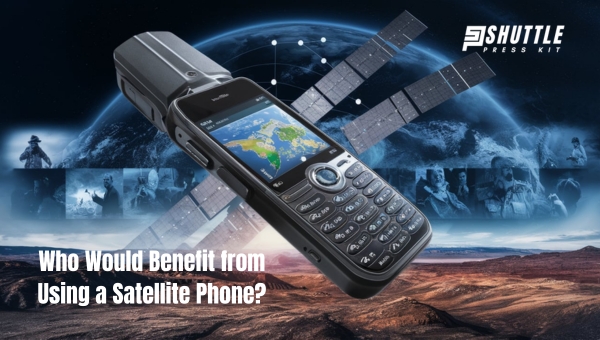
Here’s a look at who needs this technology:
- Explorers and Adventurers: Individuals venturing into remote areas such as deserts, mountains, or polar regions rely on satellite phones for their safety and coordination needs since these places usually lack mobile network coverage.
- Disaster Recovery Teams: In the aftermath of natural disasters like hurricanes or earthquakes, traditional communication infrastructures are often compromised. Satellite phones allow emergency responders to coordinate rescue operations efficiently regardless of local network status.
- Maritime Workers: Those working at sea, such as sailors or marine researchers, benefit from satellite phones due to the absence of land-based cellular networks over open water.
- International Travelers: People traveling to countries where reliable communication infrastructure is lacking or who move across various countries frequently may use satellite phones to stay connected without depending on local network availability.
These groups depend heavily on satellite phone technology to maintain communications under circumstances where conventional methods are unworkable.
Satellite Phone Features
Satellite phones are critical tools for communication where traditional cell phone networks are unreliable or nonexistent. Unlike cell phones that rely on terrestrial cell towers, satellite phones communicate directly with orbiting satellites.
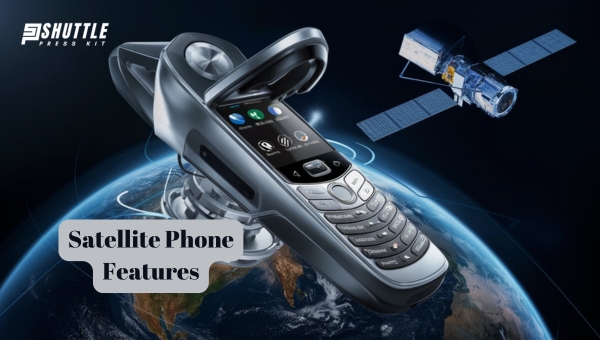
Here are some of the key features that make satellite phones indispensable in remote, maritime, and emergency scenarios:
- Global Coverage: Satellite phones offer coverage in virtually every part of the world. This is especially valuable for individuals traveling to or working in remote areas where cellular networks do not exist.
- Durability: Designed for rugged environments, most satellite phones boast a robust build that can withstand extreme weather conditions and rough handling. They often come with IP ratings for water and dust resistance.
- GPS Functionality: Many models include GPS capabilities, allowing users to send their location as part of a distress call or simply to navigate unfamiliar territories.
- SOS Features: For emergency situations, satellite phones usually have an SOS button or feature that can alert rescue services immediately with your location information.
- Long Battery Life: Given the scarcity of charging options in remote locations, these devices typically have a battery life significantly longer than that of an average smartphone, ensuring you stay connected when it matters most.
These features highlight why satellite phones are essential tools for adventurers, travelers to remote areas, maritime workers, and emergency response teams. They offer a lifeline where no other means of communication is available.
Also Read: Starlink Ethernet Adapter: Effortless Setup, Honest Review!
Satellite Phone Service Providers
Satellite phone service providers offer essential communication solutions for users in remote areas where traditional cellular networks are unavailable.
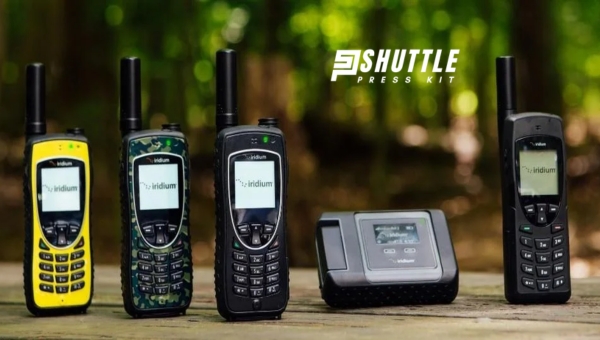
These providers utilize satellite technology to ensure connectivity, enabling voice and data services across vast geographical regions.
- Iridium: Known for its truly global coverage, Iridium operates a constellation of low Earth orbit satellites, making it ideal for users in polar regions and remote locations.
- Inmarsat: This provider specializes in geostationary satellite communication, delivering reliable voice and broadband data services primarily for maritime, aviation, and enterprise applications.
- Thuraya: Offering robust coverage across Europe, Africa, and Asia, Thuraya provides satellite communication solutions tailored for travelers, governments, and businesses.
- Globalstar: Focused on providing affordable satellite communication, Globalstar’s service is designed for outdoor enthusiasts and professionals operating beyond cellular coverage.
- BSNL (Bharat Sanchar Nigam Limited): BSNL offers satellite phone services primarily within India, catering to users in remote and disaster-affected areas through the Inmarsat network.
Also Read:Starlink Volcano Mount Guide: Easy DIY Installation Tips
Can I use a satellite phone anywhere?
Yes, they work in remote areas, far from cellular networks, but their functionality might be limited near the poles or in dense environments due to satellite visibility.
How expensive are satellite phone calls?
Calling rates are typically higher than cellular phones, reflecting the cost of connecting via satellites rather than land-based cell towers.
Do satellite phones work in bad weather?
While generally reliable, heavy rain or storms might affect call quality due to interference with the satellite signal.
Conclusion
Satellite phones stand as a vital communication tool, especially in regions where traditional mobile networks fail to reach.
Their unique ability to connect through satellites orbiting Earth enables them to provide coverage across remote areas, high seas, and disaster-hit zones, where maintaining communication lines could mean the difference between life and death.
Over the years, advancements in technology have made satellite phones more accessible and user-friendly, allowing not just emergency personnel but also adventurers, global travelers, and remote workers to stay connected with the rest of the world.
